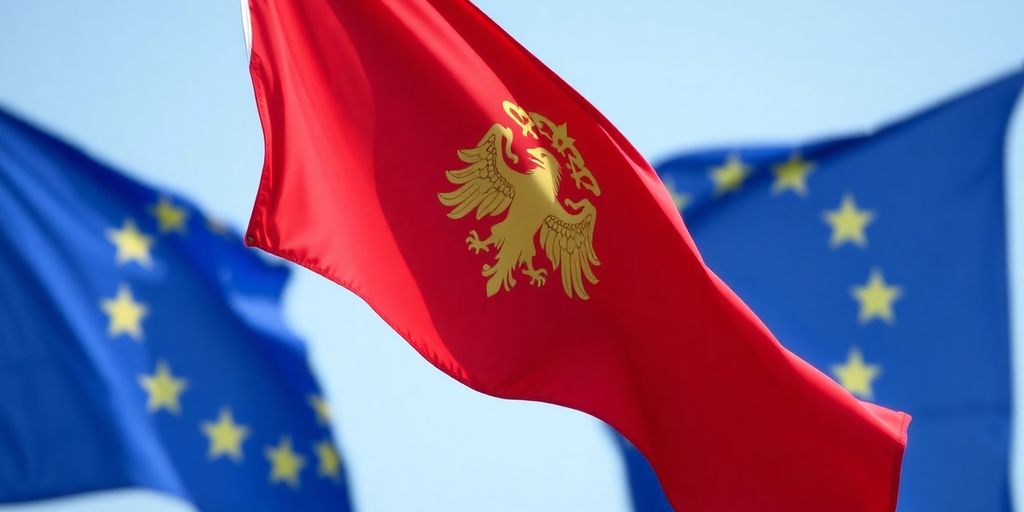Montenegro is making significant strides towards European Union membership, provisionally closing more negotiation chapters and receiving praise from EU officials. Despite this progress, challenges remain, including internal political dynamics and external influences, particularly from Serbia. International support continues to be a crucial factor in Montenegro’s EU aspirations.
Montenegro’s Steady Progress Towards EU Accession
Montenegro has demonstrated tangible progress in its EU accession negotiations. On June 27, 2025, it provisionally closed Chapter 5 on public procurement, bringing the total to seven closed chapters out of 33. This achievement was lauded by Adam Szłapka, Poland’s Minister for European Affairs, and Enlargement Commissioner Marta Kos, who reiterated support for Montenegro’s goal of finishing negotiations by the end of 2026.
Previous milestones include the provisional closing of Chapters 7 (intellectual property), 10 (information society and media), and 20 (enterprise and industrial policy) on December 16, 2024.
Key Takeaways
- Montenegro has provisionally closed 7 out of 33 negotiation chapters with the EU.
- EU officials commend Montenegro’s commitment to reforms and progress.
- The target for concluding accession negotiations is by the end of 2026.
International Support and Recognition
European Council President Antonio Costa praised Montenegro’s advancement, calling it "one of the finest examples of the EU’s positive enlargement momentum." During his visit to Podgorica on May 14, 2025, Costa emphasized that enlargement is a vital geopolitical investment for stability in the Western Balkans and Europe. Montenegro’s President Jakov Milatovic expressed the nation’s ambition to become the 28th EU member state by 2028.
Hungary has also been a staunch supporter of Montenegro’s EU bid. Prime Minister Viktor Orbán stated that the EU itself is the "only obstacle" to Montenegro’s accession, asserting that Montenegro meets all criteria and is crucial for regional stability. Hungary and Montenegro have signed agreements focusing on infrastructure development, telecommunications, and IT, further solidifying their partnership.
Challenges and External Influences
Despite the positive momentum, Montenegro faces significant hurdles. Internal political instability, exemplified by Prime Minister Milojko Spajić’s leadership and the internal discord within his "Europe Now!" movement, raises concerns about the consistency of reform efforts. Critics point to a bloated government and controversial economic policies.
External influences, particularly from Serbia, pose a substantial threat to Montenegro’s EU path. While Russia is often cited as a disruptive force, many Montenegrins and analysts believe Serbia’s increasingly autocratic regime, under Aleksandar Vučić, presents a more immediate challenge. Serbia’s promotion of "Srpski svet" (Serbian World) ideology, which seeks to unite all ethnic Serbs under one political roof, is seen as a revanchist agenda that undermines Montenegro’s sovereignty and its European aspirations. Serbian media dominance in Montenegro further amplifies anti-EU and anti-NATO narratives.
The Path Forward
For Montenegro to successfully navigate its EU accession, a united political coalition committed to integration is essential. This coalition must prioritize democratic reforms, transparency, and counter external divisive narratives. The EU and US play a critical role in providing sustained political, economic, and strategic support, ensuring Montenegro remains firmly on its Western path. Successfully integrating Montenegro would send a powerful message to other Western Balkan countries that EU membership is a tangible and achievable goal.
Sources
- Montenegro closes chapter 5 on public procurement in negotiations with the EU, European Western Balkans.
- PM Orbán: EU itself is only obstacle to Montenegro’s accession to bloc, Latest news about Hungary.
- The European Council president praises Montenegro’s advance on the path to joining the EU, AP News.
- Are Albania and Montenegro on the fast track to EU membership?, Atlantic Council.
- Montenegro’s fight for EU membership amid Serbian revanchism, New Eastern Europe.






